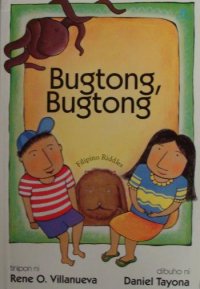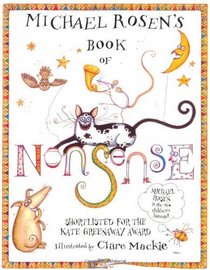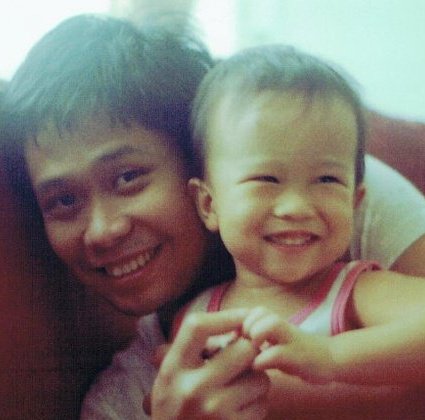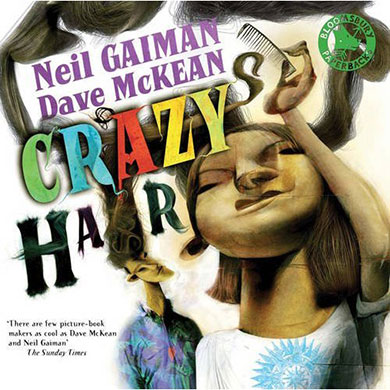Like the average child in the Philippines, I never had that many books when I was small. By books I mean those that I would have wanted to read outside school or those that I would have really wanted to own and see everyday and read and read and read again, and again. And dream about.
I wasn’t born into an affluent family and we all know that books are meant to be crossed out the daily basic grocery list. My grade school had a small library and that humble space that housed quite a few lovely fantasies in print became my refuge as a child who wanted to live in that image of travelling to distant lands and times just by getting hold of a little collection of words that decided to inhabit pages upon pages of conquerable space.
Perhaps it was the feeling of being deprived that began my obsession with letters. Maybe it was this lack, in some Lacanian fashion, that drives me to seek words and ask (sometimes, force) them to render experienceable by others the imagined spaces in my head. But this process is sometimes (often?) not achievable. If this could be classified as desire, then the only thing I actually do is chase after it with the thought (subconscious) that making these worlds word-real could never be achieved.
Holeless socks and pristine handkerchiefs, and the interminable sadness of living
My grandmother loves me and I call her Mami. Whenever a special occasion draws near, she would ask me or my family what I would like as a present. And I would always say socks and hankies.

 In consonance with the psychoanalytic theme I set out earlier, this, perhaps, is also due to unresolved childhood issues that hound me well past the specular events in my life. Literally, it was because, when I was young, I only had one handkerchief I could claim for myself—it had a monogram of my grandmother’s—and a few pair of decent socks that I sometimes had to fight my brothers over. Therefore, they were not really mine. On a deeper level, perhaps my joy in seeing plentiful clean handkerchiefs and pairs of socks mean something more profound. This significance evades me although what I know is no matter how many hankies my grandmother gifts me, they constantly lessen in number through the years and no matter how many pairs of socks I acquire, they always end up in confounding solitude after doing the laundry. True, a lost piece may be partnered with another forlorn one but that would only work if they match.
In consonance with the psychoanalytic theme I set out earlier, this, perhaps, is also due to unresolved childhood issues that hound me well past the specular events in my life. Literally, it was because, when I was young, I only had one handkerchief I could claim for myself—it had a monogram of my grandmother’s—and a few pair of decent socks that I sometimes had to fight my brothers over. Therefore, they were not really mine. On a deeper level, perhaps my joy in seeing plentiful clean handkerchiefs and pairs of socks mean something more profound. This significance evades me although what I know is no matter how many hankies my grandmother gifts me, they constantly lessen in number through the years and no matter how many pairs of socks I acquire, they always end up in confounding solitude after doing the laundry. True, a lost piece may be partnered with another forlorn one but that would only work if they match.
There are so many other things that do not seem to flow with the rhythm that I initially compose in assaying some form of organisation in my life. Still as a child, I remember my mother promising to give me what I wanted if I did good in school. I wanted books. I topped my class. I asked for books. But my mother bought an electric fan instead. More people would benefit from it, was her reason. She was probably right. Pragmatism rules over whimsical wishes when economy defines the substance of one’s day-to-day existence.
I never wanted to teach but I ended up not having left school since I started going to it. There are songs in my head but my voice cracks at the attempt of singing. I would love to cook but if I do “really” cook, then there’d be no time left for me to “really” eat. As an academic, I use a language that presses me to say things as they are when in truth, reality is always far from what it appears to be.
I never had much of anything that materialises childhood happiness in its most banal and conventional sense. Toys, storybooks, trips, funfairs, magic shows, pets, bicycles, scooters…I only had dreams that never bothered to present themselves as either problematic or impossible. They were (and have always been) the real in my life. And also, I had words. Just so, you know, these intangibles could achieve a certain degree of materiality. Plus, it helped heaps that I knew how to draw.
What is sad about this is not the hardships that my family had to endure when I was young nor the material impoverishment that I had to live with as a child. What’s sad is the fact that even as an adult, I have to struggle for words not to be taken from me or imagination not to be squandered by me in the pursuit of a life that is normal and sufferable. What’s sad is that the only thing I had and owned when life was uncharitable is constantly in danger of being taken away. By me and the decisions that I make (or obliged to make) that bear no sympathy towards words, my words and my worlds.
Right now,I miss how it is to be lost in words
that turn into music when each last syllable extends
its limbs
to reach out to the next sensible semantic presence
of an idea that promptly disappears
when denied the fullest attention.
I miss the perplexity of a sinuous path that irascible language forges in pursuit of the most subtle, efficient and economic expression of thoughts and feelings and soul.
Of fun things funny and divine, and worthless sometimes, but only sometimes
I am not a poet. I can never master the art of writing in verse. I could probably say that I am sometimes an erstwhile fictionist. I do know, however, that poetry is not confined to writing in rhyme and meter.
My first taste of poetry, as far as I could recall, did not come from the classics or the revered of the English, American or Filipino literature. It came from the streets, from long days of play and games, sweat and grime, camaraderie and trivial arguments among friends and neighbours who seize life by its irreplaceable moments. It came from staccato rhythms and ludic rhymes that dare defy conventions of the proper and the elegant. It came from enigmas contained in the bugtong—riddles in verse—the answers to which we soon realised we could master by memorisation. We chanted these meaningless verses and ran and jumped around, and laughed and jeered at one another. We were children and couldn’t care less about the conventions of form although looking back now these rhymes could be appreciated, of course, by structuralist scrutiny. And perhaps, arguably more excitingly, by post-structuralist dissection. Monkey, monkey/Annabelle/How many monkeys did you see? These were indeed the poetries that made my childhood oblivious to the lack of so many other things.
literature. It came from the streets, from long days of play and games, sweat and grime, camaraderie and trivial arguments among friends and neighbours who seize life by its irreplaceable moments. It came from staccato rhythms and ludic rhymes that dare defy conventions of the proper and the elegant. It came from enigmas contained in the bugtong—riddles in verse—the answers to which we soon realised we could master by memorisation. We chanted these meaningless verses and ran and jumped around, and laughed and jeered at one another. We were children and couldn’t care less about the conventions of form although looking back now these rhymes could be appreciated, of course, by structuralist scrutiny. And perhaps, arguably more excitingly, by post-structuralist dissection. Monkey, monkey/Annabelle/How many monkeys did you see? These were indeed the poetries that made my childhood oblivious to the lack of so many other things.
Poets and critics may excoriate me for being too trifling, but my definition of poetry here is quite simple, bordering on the simplistic: they are clever moments of beguiling words to somehow make palpable what is ethereal. And, they are fun too. A little stress on being fun since I teach literature and it is mandatory to present it as something that will be worthwhile to study for students who have been continually separated from the life that the world of letters could provide in these times. Otherwise, how do we impress on them that literature—more so, poetry—is not really about being precise and correct all the time.
There is sweetness in misunderstanding and certainly wisdom in rebounding from a first failed attempt. Poems are not there just to make words rhyme or syllables constant in number. Poems are there not only to confuse or amuse of befuddle. Poems are there because there is a need by us to dance without moving an inch from where we sit. Poems exist because the soul is restive and needs a place to stay without the confinement of the here or now. The soul is hungry because it is alive. When it eats, it consumes the discarnate made material by the words that offer its reality.
or reclaiming joy in the realness of the absurd
The good thing about unresolved childhood issues (only if we manage to become conscious of it, I guess) is that we are capable of making up for it in the present, if not for ourselves, then for others. Perhaps, we encounter different mirror stages in each of our life’s phase and that allows us to not only reflect but be reflexive. There will always be an incongruence between what we see and what we think, and what we think and what we say, but the point is to act towards the liberation of our imagination and the fortification of our words. Again, if not for ourselves, then for others.
Specifically, and quite limitingly, I am talking about that lack that I’ve been talking about when I was a child. Since I did not have books to call my own, I am now making sure that the children closest to me do not miss out on the joy of being in a bibliophilic relationship. That they learn to love words and the myriad ways they could transform and transfigure in order to make sense of, and render senseless, the world. For power not only lies in the creation of meanings but also, and more importantly, in their destruction.
Meaning. And its impossibility. Equals joy:
My sister
In the tradition of Lewis Carroll and Edward Lear, nonsense is again put on a pedestal by Michael Rosen and Clare Mackie in their Book of Nonsense and Even More Nonsense.
The latter was among the first books I gave my little sister when she was around five and it was most fitting since the poem on page 20, Little Queenie—yes, in tiny fonts—seemed eponymous and ego-inducing. I am just so glad that my little sister did not turn out to be a meanie!
When I gave her this, I had hoped that she would not only regard literature as a frantic search for unearthly meanings but would learn to embrace it as an experience that is primarily affective. Truth is, there are moments when we read a poem, for instance, whose meaning becomes enmeshed with the experience it affords us so that its significance cannot be contained by logic alone. Put simply, I wanted her to have fun while reading. And she did. She hasn’t stopped—reading and having fun at it—since then.
My son
When he was still in his mum, I remember reading to him books that portray quirky and quite sassy characters (this is for another essay). Now I know that the symbolic order comes even before the child is born. My son is now three and I slowly, joyously and nervously, witness these literary characters he listened to in utero come to life in him. Nevertheless, abjection is still in order and that madness is sometimes a trait that we must instil in a young one’s mind.
Because the little one loves anything that has to do with knights, dragons, soldiers and tanks, it was no surprise how he enjoyed Gabby Lee and Marcy Dans Lee’s rendition of the Filipino legend of Mount Kanlaon in La-On and the Seven-headed Dragon. Not only did it introduce the boy to local folklore, the humour and the wit by the way the story was written in verse underscored La-On’s intelligence and cleverness as the main weapons that slayed the dreadful virgin-eating dragon. A handy counter-discourse to my son’s staples of karate chops and gunfights.
One other very memorable set of ridiculous rhymes that he (and his parents) clearly enjoyed was Crazy Hair by Neil Gaiman and Dave McKean. I don’t know about my little boy, but the image of hair gone wild certainly resonates with me and my, literally, crazy hair (aka bad-hair-day hair). Crazy hair?/Oh me, oh my/Crazy hair?/I thought I’d die. The dying part is a familiar feeling.
The girl in the story named Bonnie —who learns soon enough the consequences of kibitzing—and the tight fix she finds herself in (literally and figuratively) is what I wish my child would never forget. Imagine getting eternally caught in unbridled and unbraided ideas and images and the freedom to wallow in them. I can only hope that he, by his own volition and discovery, finds his life within tangles and splits of meanings and counterpoints, and symbolic and meaningful daily junctures.
I would certainly love it for my son to learn to love and write poems. But nothing would make me happier if he ends up being able to find poetry—the mad and the sane—in all the days of his life instead.
And some other child
There are times when my life rejects the harmony being offered by regular measure and the consistency contained in rhymes. Contradiction must be the ethos of our modern life’s insistence to live despite the caveats of our contemporary presence. Tim Burton’s The Melancholy Death of Oyster Boy and other stories is joy ironically packaged in tragedy. The way I see it.
This book is love since it evokes what, to me, has largely been overrepresented yet poorly developed and undertheorised in my country’s (and perhaps there are echoes of it in many places as well) popular media and literature—tragedy, pain and sadness.
The illustrated collection of rhymes by the man whose idiosyncratic cinematic masterpieces we are more au fait with is a testament to the absurdity of this we call life. It is a reminder that tragedy is but a temporary stop in the quest to acquire whatever we desire the most. We may not know it, but desire is the real which is also the impossible (my apologies to Lacan). Nonetheless, this should not stop us from achieving things. Including happiness.
 Alwin C. Aguirre, PhD Cand.
Alwin C. Aguirre, PhD Cand.Auckland
December 11, 2011 Alwin Aguirre is currently taking his PhD at the Institute of Culture, Discourse and Communication in Auckland University of Technology, New Zealand. He was also a recipient of the Nippon Foundation Fellowships for Asian Public Intellectuals and has won the Palanca Award in 2000 (Future Fiction category in Filipino for his work Desaparecidos), in 2002 (Future Fiction category in Filipino for his work Semi-Kalbo) and in 1999 (Short story in Filipino for his work Dalantao).













2 comments
Lea Millares-Sylvester
December 13, 2011 at 9:38 pm (UTC 8) Link to this comment
Galeng galeng Alwin! Congratulations!
gb_admin
December 13, 2011 at 11:26 pm (UTC 8) Link to this comment
The story resonates and so do the words. This reminds me of a line I read in one blog. It says: “words give us the power to turn everything into anything.” I guess in some way that is the case here. And I love that the opportunity to fall in love with words is passed on to the next generation…
Thanks for writing for our Academic Nook.
-iphigene